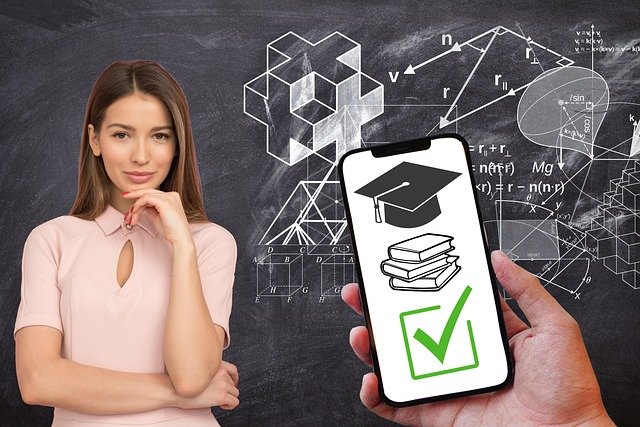Educational System Evolution and Societal Expectations
Educational systems worldwide have undergone dramatic transformations over the past century, reflecting changing societal values, technological advances, and evolving workforce demands. From traditional classroom-based learning to digital platforms and personalized instruction, these changes mirror broader shifts in how communities approach knowledge transfer, skill development, and social preparation. Understanding this evolution helps illuminate the complex relationship between education and society's expectations for future generations.

How Society Shapes Educational Development
The relationship between society and education operates as a dynamic feedback loop. As communities evolve, their educational systems must adapt to meet new demographic realities, cultural shifts, and economic demands. Traditional models that emphasized rote memorization and standardized curricula have gradually given way to approaches that prioritize critical thinking, creativity, and adaptability. This transformation reflects society’s recognition that modern challenges require diverse skill sets and innovative problem-solving abilities.
Demographic changes significantly influence educational priorities. Aging populations in developed nations have shifted focus toward lifelong learning and adult education programs. Meanwhile, younger populations in developing regions drive demand for expanded access to primary and secondary education. These demographic trends force educational systems to reconsider resource allocation, teaching methodologies, and institutional structures.
Cultural Values and Communication in Learning
Cultural diversity within educational environments has reshaped how institutions approach curriculum design and instructional delivery. Schools now recognize the importance of inclusive practices that honor different cultural backgrounds while maintaining academic standards. This shift acknowledges that effective communication in diverse classrooms requires understanding various cultural contexts and learning styles.
The integration of technology has revolutionized communication patterns within educational settings. Digital platforms enable real-time interaction between students, teachers, and parents, creating unprecedented opportunities for collaborative learning. However, this technological integration also raises questions about digital equity and access, particularly in underserved communities where infrastructure limitations persist.
Identity Formation and Social Interaction
Modern educational systems increasingly recognize their role in identity formation and social development. Schools serve as primary venues where young people develop their sense of self, learn to navigate complex social relationships, and acquire the interpersonal skills necessary for future success. This understanding has led to greater emphasis on social-emotional learning, conflict resolution, and character development within formal curricula.
The psychology of learning has evolved significantly, with educators now understanding that effective instruction must account for individual differences in cognitive processing, emotional regulation, and social interaction preferences. This knowledge has prompted the development of differentiated instruction techniques and personalized learning approaches that accommodate diverse student needs.
Lifestyle Trends and Educational Adaptation
Contemporary lifestyle trends have forced educational institutions to reconsider traditional scheduling and delivery models. The rise of dual-career families, increased mobility, and changing work patterns have created demand for flexible educational options. Many institutions now offer extended day programs, online learning opportunities, and alternative scheduling arrangements to accommodate evolving family structures and lifestyle preferences.
Anthropological research reveals how educational practices reflect and reinforce cultural values. Societies that prioritize individual achievement tend to develop competitive educational environments, while those emphasizing collective success create more collaborative learning structures. These differences highlight how deeply embedded cultural assumptions shape educational approaches and student expectations.
Sociological Perspectives on Educational Change
Sociological analysis of educational systems reveals the complex interplay between institutional structures and social stratification. Educational policies often reflect broader societal debates about equality, meritocracy, and social mobility. Reform movements typically emerge when existing systems fail to meet changing social expectations or when persistent achievement gaps highlight systemic inequities.
The concept of social capital has gained prominence in educational discourse, with researchers demonstrating how community connections and networks influence student outcomes. Schools increasingly recognize their role in building social capital by fostering relationships between families, community organizations, and local businesses. This approach acknowledges that educational success depends not only on individual effort but also on supportive social environments.
Diversity, Inclusion, and Future Development
The push for greater diversity and inclusion in educational settings reflects broader societal movements toward equity and justice. Institutions are implementing policies and practices designed to ensure that all students, regardless of background, have access to high-quality educational opportunities. This effort requires ongoing attention to unconscious bias, cultural competency, and structural barriers that may impede student success.
Looking forward, educational systems must continue adapting to rapid social change while maintaining their core mission of knowledge transmission and skill development. The challenge lies in balancing tradition with innovation, ensuring that educational evolution serves both individual student needs and broader societal goals. Success in this endeavor requires ongoing dialogue between educators, policymakers, families, and community members to align educational practices with evolving social values and expectations.






